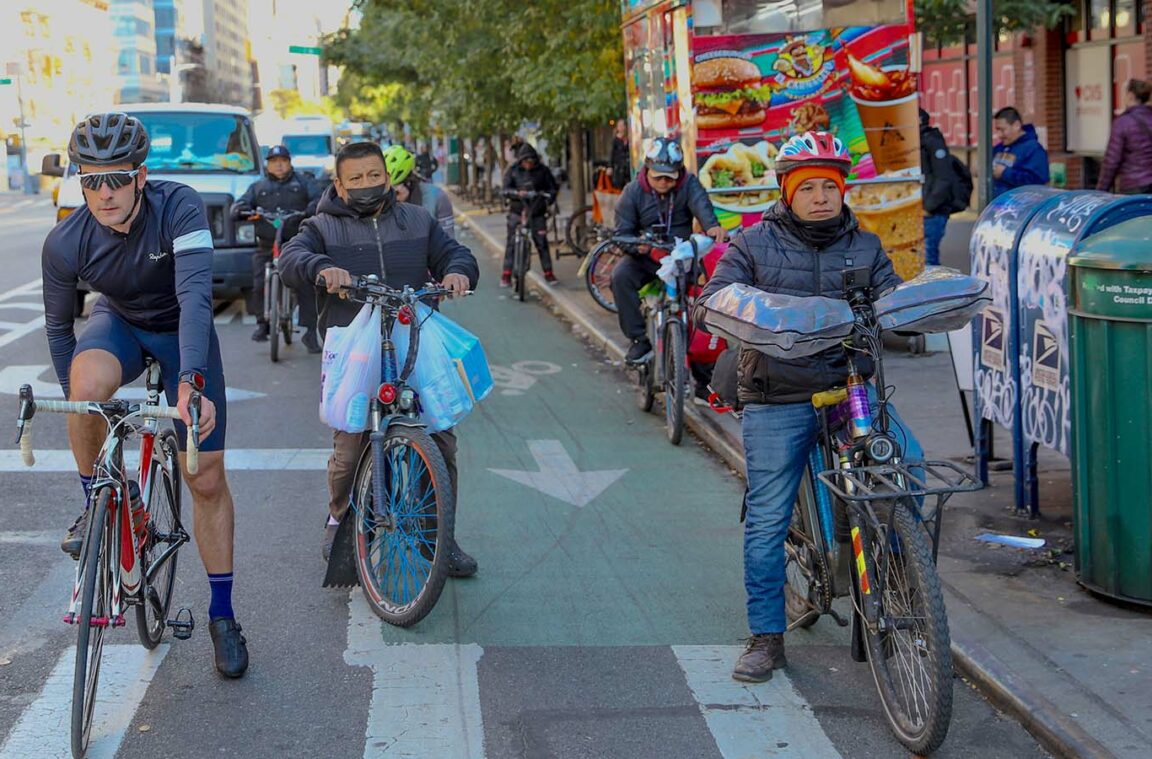NEW YORK — Juan Solano, an activist and dedicated delivery worker, joins the ranks of the numerous delivery workers in New York City who rely on their electric bikes daily to deliver meals to eager New Yorkers.
Three years ago, Solano, in collaboration with his cousins, established a Facebook page and grassroots network aimed at advocating for the rights of delivery workers navigating the city’s bustling streets. However, the recent implementation of a new law intended to benefit these workers has inadvertently caused turmoil within the industry, with some finding themselves in a more precarious position than before.
The legislation mandates that major food delivery platforms like Grubhub, Uber, and DoorDash must ensure a minimum hourly wage of $17.96 for delivery workers before factoring in tips, with provisions for annual adjustments to account for inflation. Despite these seemingly positive changes, the situation took a turn when DoorDash and Uber decided to modify their tipping systems, allowing customers to tip only after the completion of the order—a move that has been criticized as punitive by some observers.
In response to the backlash, DoorDash justified its actions in a statement on December 4, 2023, citing concerns about the financial implications of the new wage requirements. Consequently, delivery workers like Solano have reported a significant decrease in tips or, in some cases, a complete absence of gratuities.
Michael Lanza, a representative from the Department of Consumer and Worker Protection, reassured the public that the agency is dedicated to upholding the rights of delivery workers and providing them with necessary support.
Solano and his colleagues have noticed prolonged waiting periods before receiving order assignments, leading them to spend a considerable amount of time refreshing their delivery apps in anticipation of new tasks. This practice, known as “picotear” in Spanish, involves continuously tapping the screen to check for updates. To expedite this process, many workers, including Solano, utilize automated clickers to handle the repetitive task. Despite these challenges, Solano remains resilient, navigating the streets in the hopes of securing more orders.
Originally from San Juan Puerto Montaña in Guerrero, Mexico, Solano works for a delivery app called Relay, which currently operates outside the scope of the new minimum wage regulations, allowing him to earn $12.50 per hour. Despite his dedication, Solano has encountered days with minimal to no orders, highlighting the unpredictable nature of his work.
Solano’s routine involves traversing various neighborhoods, covering extensive distances across the Upper East and West Sides, Midtown, Hell’s Kitchen, and beyond in search of delivery opportunities.
Throughout his journey, Solano finds moments of camaraderie with fellow workers, navigates bustling locations like Times Square, expertly balances orders on his bike, and reflects on his passion for music, occasionally performing at cultural events like a Día de los Muertos commemoration in East Harlem.
The snapshots captured in the accompanying photos offer a glimpse into Solano’s dynamic life as a delivery worker and advocate in the vibrant cityscape of New York.
